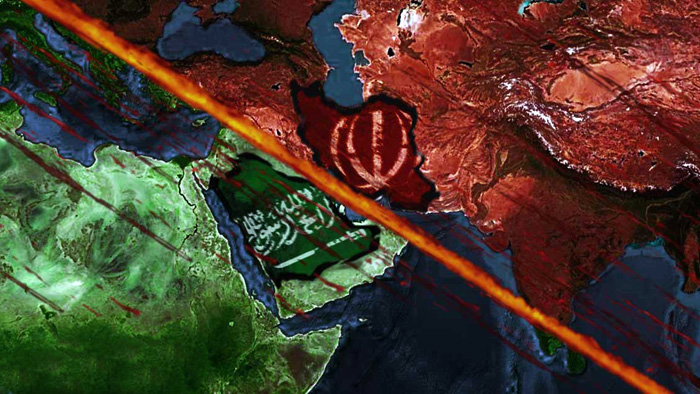Joschka Fischer
With the retaking of Mosul in northern Iraq, the Islamic State (ISIS) could soon be a thing of the past. But the defeat of ISIS and the demise of its self-proclaimed Iraqi-Syrian caliphate won’t bring peace to the Middle East, or even an end to the Syrian tragedy. Rather, it is likely to open a new chapter in the region’s bloody and chaotic history – one no less dangerous than the previous chapters since the fall of the Ottoman Empire at the end of World War I.
The continuation of this violent pattern seems almost certain because the region remains unable to resolve internal conflicts on its own, or to create anything like a resilient framework for peace. Instead, it remains trapped somewhere between the nineteenth and twentieth centuries.
Western powers are hardly blameless for the Middle East’s woes. Any mention of the Sykes-Picot Agreement, by which Great Britain and France partitioned the post-Ottoman territories, still incites such rage in the Arab world that it seems as if the plan, devised in secret in 1916, had been conceived only yesterday.
Nor should we forget Czarist Russia’s role in the region. Following World War II, its successor, the Soviet Union, and its Cold War rival, the United States, began their multiple interventions.
Indeed, the US may be the most significant contributor to today’s regional turmoil. America’s interest in the Middle East was originally based on its need for oil. But, with the onset of the Cold War, economic interest quickly morphed into a strategic interest in preventing the emergence of anti-Western, Soviet-friendly governments. America’s effort to maintain decisive influence in the region was then supplemented by its close security partnership with Israel, and finally by the two large military interventions of the two Gulf Wars against Saddam Hussein’s Iraq.
America’s involvement in Afghanistan, too, has had profound repercussions for the Middle East. The US-backed insurgency of the 1980s, launched under the banner of jihad against the occupying Soviet Union, transformed two close American allies – Pakistan and Saudi Arabia – into strategic threats. This became clear on September 11, 2001, when it emerged that 15 of the 19 attackers sent by al-Qaeda were Saudi citizens. And it was Pakistan that created the Taliban, which provided al-Qaeda a haven for hatching its plots against the US and the West.
The success of the first Gulf War, launched in January 1991 by President George H.W. Bush, was fatally undermined 12 years later by his son, President George W. Bush, whose own Gulf War caused a regional catastrophe that continues to this day. Whereas the senior Bush had pursued the limited objectives of liberating Kuwait and didn’t seek regime change in Iraq, his son’s aims were far more ambitious.
The idea was to topple Saddam Hussein and bring about a democratic Iraq, which would catalyze comprehensive change throughout the Middle East and transform it into a democratic and pro-Western region. Within the younger Bush’s administration, imperial idealism prevailed over hardheaded realism, resulting in sustained destabilization of the Middle East as a whole and helping to place Iran in a position to expand its influence.
After the Islamic State’s demise, the next chapter in the history of the Middle East will be determined by open, direct confrontation between Sunni Saudi Arabia and Shia Iran for regional predominance. So far, this long-smoldering conflict has been pursued under cover and mostly by proxies. The two global powers active in the region have already clearly positioned themselves in this conflict, with the US siding with Saudi Arabia and Russia with Iran.
The current “war on terror” will increasingly be replaced by this hegemonic conflict. And with Saudi Arabia and four Sunni allies imposing isolation on Qatar, in part owing to the Qataris’ close relations with Iran, this conflict has reached its first potential tipping point at the very center of the region, the Persian Gulf.
Any direct military confrontation with Iran would, of course, set the region ablaze, greatly surpassing all previous Middle East wars. Moreover, with the fires in Syria still smoldering, and Iraq weakened by the sectarian struggle for power there, ISIS or some successor incarnation is likely to remain active.
Another destabilizing factor is the reopening of the “Kurdish question.” The Kurds – a people without a state – have proven to be reliable fighters against ISIS and want to use their new political and military clout to make progress toward autonomy, or even an independent state. For the countries affected – first and foremost Turkey, but also Syria, Iraq, and Iran – this question is a potential casus belli, because it affects their territorial integrity.
Given these unresolved questions and the escalation of the hegemonic conflict between Iran and Saudi Arabia, the next chapter in the region’s history promises to be anything but peaceful. Yes, the US may have learned from the Iraq disaster that it cannot win a land war in the Middle East, despite its vastly superior military power. President Barack Obama sought to withdraw US forces from the region, which proved difficult to achieve both politically and militarily. That’s why he ruled out military intervention – even from the air – in the Syrian civil war, leaving a vacuum that Russia quickly filled, with all of the known consequences.
Obama’s successor, Donald Trump, also campaigned on a promise to withdraw from the region. Since the election, he has launched cruise missiles at Syria, entered into more comprehensive commitments toward Saudi Arabia and its allies, and escalated America’s confrontational rhetoric vis-à-vis Iran.
Trump clearly faces a steep learning curve when it comes to the Middle East – a region that won’t wait for him to master it. There is no reason to be optimistic.







Comments